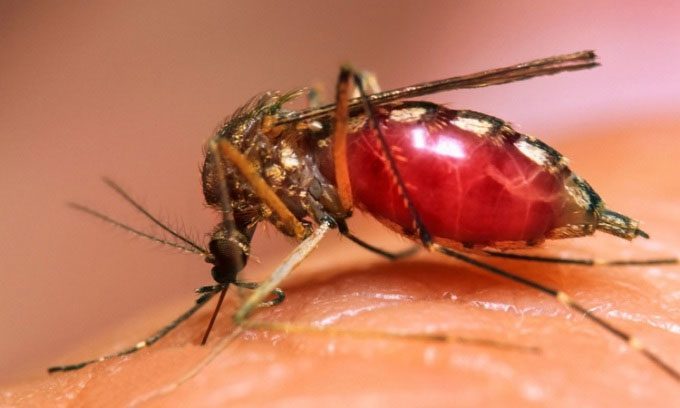The saliva of mosquitoes infected with the dengue virus contains compounds that hinder the immune system, making it easier for humans to contract the disease.
Dengue fever has spread in recent years across Europe and the southern United States, alongside hotspots in tropical and subtropical regions such as Southeast Asia, Africa, and Latin America. A new discovery published in the journal PLOS Pathogens by scientists at the University of Virginia (UVA) School of Medicine explains why dengue fever spreads so easily and presents new measures to prevent transmission, Phys.org reported on April 3rd.

Saliva of mosquitoes infected with the dengue virus hinders the immune system from preventing disease. (Photo: Scientific American)
Dr. Mariano A. Garcia-Blanco from the Department of Microbiology, Immunology, and Cancer Biology at UVA and his colleagues found that the saliva of infected mosquitoes contains not only the dengue virus but also a potent compound. This molecule, produced by the virus, can neutralize immune responses. Infection with the molecule known as sfRNA through mosquito bites significantly increases the likelihood of contracting dengue fever. By delivering sfRNA at the bite site, mosquito saliva sets the stage for effective infection, giving the virus an advantage in the initial battle against the immune system.
Previously, scientists studying mosquitoes suspected that their saliva might contain something that enhances transmission potential. The findings by Garcia-Blanco and his team reveal a viral weapon, opening new avenues for reducing infections and controlling the spread of the disease. Garcia-Blanco predicts that researchers will identify similar immune-inhibiting compounds associated with other mosquito-borne diseases such as Zika, West Nile virus, and yellow fever caused by various flavivirus strains.
Approximately half of the world’s population is at risk of contracting dengue fever, with an estimated 400 million infections occurring each year. Symptoms of dengue fever include fever, vomiting, and rashes, which are often mistaken for other illnesses. Most cases are mild, but about 1 in 20 can progress to severe illness, potentially leading to shock, internal bleeding, and death. Individuals can contract dengue fever multiple times due to the presence of four strains of the virus transmitted by the Aedes mosquito.



















































